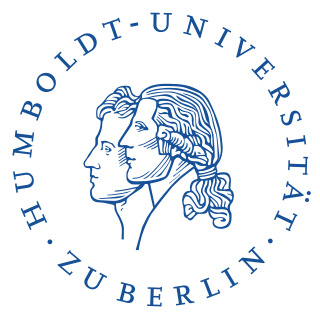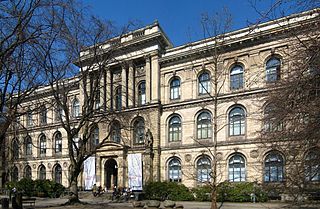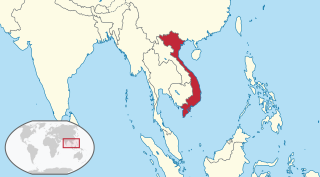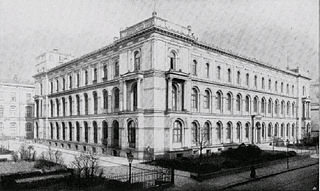Berlin University or University of Berlin may refer to:

Technische Universität Berlin is a public research university located in Berlin, Germany. It was the first German university to adopt the name "Technische Universität".

The Humboldt University of Berlin is a public research university in the central borough of Mitte in Berlin, Germany.

The Free University of Berlin is a public research university in Berlin. It was founded in West Berlin in 1948 with American support during the early Cold War period as a Western continuation of the Friedrich Wilhelm University, or the University of Berlin, whose traditions and faculty members it retained. The Friedrich Wilhelm University, being in East Berlin, faced strong communist repression; the Free University's name referred to West Berlin's status as part of the Western Free World, contrasting with communist-controlled East Berlin.

The Natural History Museum is a natural history museum located in Berlin, Germany. It exhibits a vast range of specimens from various segments of natural history and in such domain it is one of three major museums in Germany alongside Naturmuseum Senckenberg in Frankfurt and Museum Koenig in Bonn.

The Charité – Universitätsmedizin Berlin is Europe's largest university hospital, affiliated with Humboldt University and the Free University of Berlin.

The Gottfried Wilhelm Leibniz Prize, or Leibniz Prize, is awarded by the German Research Foundation to "exceptional scientists and academics for their outstanding achievements in the field of research". Since 1986, up to ten prizes have been awarded annually to individuals or research groups working at a research institution in Germany or at a German research institution abroad. It is considered the most important research award in Germany.

The Berlin-Brandenburg capital region is one of the most prolific centers of higher education and research in the world. It is the largest concentration of universities and colleges in Germany. The city has four public research universities and 27 private, professional and technical colleges (Hochschulen), offering a wide range of disciplines. Access to the German university system is tuition free.

Hans Joas is a German sociologist and social theorist.

Dahlem is a locality of the Steglitz-Zehlendorf borough in southwestern Berlin. Until Berlin's 2001 administrative reform it was a part of the former borough of Zehlendorf. It is located between the mansion settlements of Grunewald and Lichterfelde West.
The Berlin Graduate School of Natural Sciences and Engineering (BIG-NSE) is part of the Cluster of Excellence "Unifying Concepts in Catalysis" (UniCat) founded in November 2007 by the Technical University of Berlin and five further institutions in the Berlin area within the framework of the German government‘s Excellence Initiative.
Humboldt may refer to:

Heinrich Fink was a German theologian, university professor and politician. In 1991 Fink was dismissed from Humboldt University of Berlin due to allegations against him being a former informer for the East German state security office, the Stasi. Fink denied the allegations.

The Berlin School of Library and Information Science at Humboldt Universität zu Berlin offers study programmes at three levels: bachelors, masters, and doctoral. It is the only institute in Germany with a doctoral programme and the right to award doctorates. Research methods are also an integral part of the pre-doctoral curriculum.

Vietnamese studies, or Vietnamology, in general is the study of Vietnam and things related to Vietnam. It refers, especially, to the study of modern Vietnamese and literature, history, ethnology, and the philological approach, respectively.

The Agricultural University of Berlin was an agricultural university in Berlin, Germany. Established in 1881, it was closed in 1934, and incorporated as a faculty into the Humboldt University of Berlin.

The Humboldtian model of higher education or just Humboldt's Ideal is a concept of academic education that emerged in the early 19th century and whose core idea is a holistic combination of research and studies. Sometimes called simply the Humboldtian model, it integrates the arts and sciences with research to achieve both comprehensive general learning and cultural knowledge. Several elements of the Humboldtian model heavily influenced and subsequently became part of the concept of the research university. The Humboldtian model goes back to Wilhelm von Humboldt, who in the time of the Prussian reforms relied on a growing, educated middle class to promote his claims about general education.

Rahel Jaeggi is a Swiss professor of practical philosophy and social philosophy at the Humboldt University of Berlin. Her research areas are in social philosophy, political philosophy, ethics, philosophical anthropology, social ontology, and critical theory. Since February 2018 she has been the head of the Berlin campus of the newly founded International Center for Humanities and Social Change.

Johannes Knoblauch was a German mathematician.